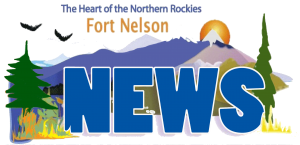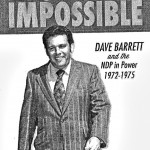Book Review – The Art of the Impossible
“DAVE BARRETT and the NDP in Power, 1972-1975″
By Geoff Meggs &
Rod Mickleburgh”
At his first cabinet meeting Premier Dave Barrett takes off his shoes, leaps on the leather-inlaid cabinet table and skids the length of the room. “Are we here for a good time or a long time?” he roars. His answer: “a good time, a time of change, action, doing what was needed and right, not what was easy and conventional.”
He set the tone for a government that changed the face of the province.
During the next three years, he and his team passed more legislation in a shorter time than any government before or since. A young person in BC today may have been born years after Barrett’s defeat but could have attended a Barrett day-care, live on a farm in Barrett’s Agricultural Land Reserve (ALR), be rushed to hospital in a provincial ambulance created by Barrett’s government and attend college in a community institution made possible by his government’s legislation. The continuing polarisation of BC politics also dates back to Barrett – the Fraser Institute and the right-wing economic policies it preaches are as much a legacy of the Barrett years as the ALR.
Dave Barrett remains a unique and important figure in BC’s history, a symbol of how much can be achieved in government and a reminder of how quickly those achievements can be forgotten. This lively and well researched book is the first in-depth study of this most memorable of BC premiers and his government.
Barrett has influenced your lives in so many ways. The fact that nearly all communities have recreation centres is due to his initiative. When it was suggested that B.C. would be a good venue for the winter Olympics, as premier, he scotched the idea, saying he preferred to see the province’s youth participate in athletic skill building. Out of this came hockey players, figure skaters and swimmers.
Barrett visited Fort Nelson during his tenure and played a role in the Trapper’s Rendezvous, allowing himself a little time in jail, before he was released to watch a hockey match. We observed him in the cold stands, bundled up in a navy quilt and enjoying himself greatly. Barrett was a man of the people.
The last time we saw him was at the Canadian journalist’s conference. The sessions were held in blocks of five or six sessions. We went to Dave Barrett’s seminar. Less that a dozen people were in the room. The audience was made up of committed women who rallied to his cause and a rather bewildered young reporter from Ontario who did know anything about Barrett, addressing his middle aged groupies with the same oratorial skill he demonstrated in the legislature. It was a mystery to the young man why he was not better known and had slipped into the cracks of history. He should read this book to understand the history of this province a little better and this remarkable man.
Authors:
Geoff Meggs is a Vancouver city councillor, a former communications director to Premier Glen Clark and former executive assistant to Vancouver mayor Larry Campbell. As a journalist, he edited The Fisherman and wrote Salmon: The Decline of the West Coast Fishery (Douglas & Mcintyre, 1991), which won the Lieutenant-Governor’s Medal for Historical Writing, and Cork Lines and Canning Lines: The Glory Years of Fishing on the West Coast, with Duncan Stacey (Douglas & Mcintyre, 1992).”
Rod Mickleburgh is a senior writer for The Globe and Mail, based in .” “Vancouver. During his long career he has worked for the Penticton Herald, .” “Prince George Citizen, Vernon News, Vancouver Sun, Vancouver Province” “and CBC TV. In 1994, he was a co-owner of the Michener Award and in 1993 was nominated for a National Newspaper Award. His previous book, “Rare Courage (McClelland and Stewart, 2005), profiled Canadian veterans” “of World War II.


 Follow
Follow



Recent Comments